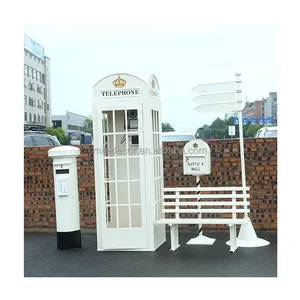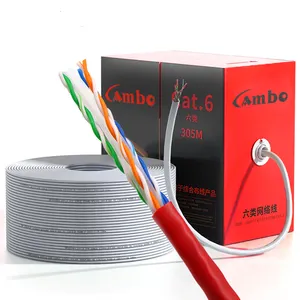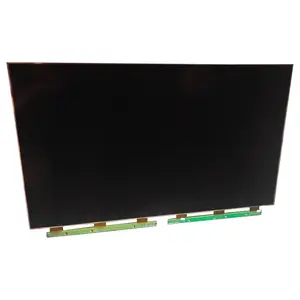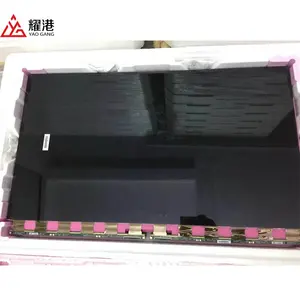Populair in uw branche





Wapening Hrb 355 Hrb400 Hrb500 8Mm 10Mm 12Mm 14Mm 16Mm Cement Ijzeren Staaf Versterkende Vervormde Wapening Stalen Staven
€ 185,22 - € 370,43
Min. bestelling: 1 ton

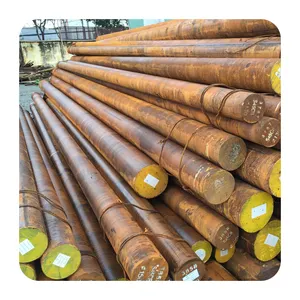





Fabrieksprijs Gelegeerd Staal Ronde Staaf 40cr 4140 4130 42Crmo Cr12mov H13 D2 Gereedschapsstalen Staaf Prijs Per Ton
€ 453,78 - € 694,56
Min. bestelling: 1 ton







Fabrieks Directe Verkoop Koudgewalst 321 316 310S Roestvrij Staal 304 Platen Voor Bouwnijverheid
€ 416,74 - € 509,34
Min. bestelling: 5 ton







St37 Warmgewalst Koolstofstaal Plaatplaatst372 ST37-2 Staalprijs
€ 648,25 - € 1.018,68
Min. bestelling: 1 ton







Groothandel Koudgewalste Stalen Plaat Aisi Astm Sus Ss 304l 310S 202 Koudgewalst Roestvrijstalen Plaat
€ 416,74 - € 509,34
Min. bestelling: 5 ton







Veerstaal 9262 1.7108 61sicr7 A21603 60si2cr Ronde Staaf Zacht Staal Leverancier 6-12Mm Diameter Zwart Mal Staal Warm Gewalst
€ 555,65 - € 592,69
Min. bestelling: 1 ton






Premium Kwaliteit 60si20mn Sup6 Hoge Sterkte Gelegeerd Structureel Verenstaal Betaalbare Prijs
€ 555,65 - € 574,17
Min. bestelling: 1 ton
Verzending per stuk: € 15,75






60Si2Mn 60Si2MnA ASTM 9260 SUP7 61SiCr7 Lente Staal Coil Stalen Plaat
€ 463,04 - € 740,86
Min. bestelling: 20 ton






Koolstofstaal Ronde Staven Ss41 Aanpassen Maat 61sicr7 9260 Veerstaal Ronde Bar Voor Verkoop
€ 388,95 - € 416,74
Min. bestelling: 1 ton









Hete Verkoop Warmgewalst 1.0612 60si2crv 1065 Veerstaal Bar 60cr3 65mn 6150 61sicr7 Gelegeerd Koolstofstaal Ronde Staaf
€ 509,34 - € 601,95
Min. bestelling: 1 ton
Verzending per stuk: € 1.225,19






Warmgewalste DIN17221 60SiCr7 61SiCr7 Aisi 9255 Lente Staal Ronde Bar
€ 555,65 - € 740,86
Min. bestelling: 5 ton
Gerelateerde zoekopdrachten:






6150 51crv4 Sup7 Sup9 Sup10 50Crva Stalen Ronde Staaf 55Sicra 65mn Silicium-Mangaan Laaggelegeerde Veer Warmgewalste Stalen Staaf
€ 555,65 - € 740,86
Min. bestelling: 1 ton






Astm 1566 1065 5160 Sup6 61sicr7 55cr3 Dc01 Dc04 Spcc Q235 Q255 Q275 A36 Koolstofstaalplaat
€ 555,65 - € 648,25
Min. bestelling: 5 ton
Verzending per stuk: € 8,71






Astm 1566 1065 5160 Sup6 61sicr7 55cr3 Dc01 Dc04 Spcc Q235 Q255 Q275 A36 Koolstofstaalplaat
€ 537,13 - € 583,43
Min. bestelling: 5 ton






Lente Carbon Staal Astm 1566 1065 5160 A283 Gr. C Sup6 Sup7 61sicr7 55cr3 65mn Staalplaat
€ 463,04 - € 555,65
Min. bestelling: 5 ton
Verzending per stuk: € 8,71






Hete Verkoop Warmgewalst 1.0612 60si2crv 1065 Veerstaal Bar 60cr3 65mn 6150 61sicr7 Gelegeerd Koolstofstaal Ronde Staaf
€ 509,34 - € 601,95
Min. bestelling: 49 ton
Verzending per stuk: € 34,86






Hete Verkoop Warmgewalst 1.0612 60si2crv 1065 Veerstaal Bar 60cr3 65mn 6150 61sicr7 Gelegeerd Koolstofstaal Ronde Staaf
€ 1.446,99 - € 1.591,69
Min. bestelling: 10 ton
Verzending per stuk: € 4,58






Astm 1566 1065 5160 Sup6 61sicr7 55cr3 Dc01 Dc04 Spcc Q235 Q255 Q275 A36 Koolstofstaalplaat
€ 481,56 - € 555,65
Min. bestelling: 50 ton
Verzending per stuk: € 4.628.511,39












Slijtvast Veerstaal Prijs 60si2mn 9260 61sicr7 1.7108 Gelegeerd Staal Verenstaal
€ 888,11 - € 895,51
Min. bestelling: 1 ton












60Si2MnA Astm 9260 SUP7 61SiCr7 Lente Staal Platte Staven
€ 0,8335 - € 1,12
Min. bestelling: 1000 kilogram






Uitstekende Kwaliteit Staaldraad 3Mm Lente Staaldraad 1566 9260 61sicr7 Voor Verkoop
€ 703,82 - € 740,86
Min. bestelling: 1 ton


















China Bestseller Leveren Koudgetrokken 440c 201 304 304l 316 410 420 Spiegel Afwerking Roestvrij Staal Flat Bar
€ 509,34 - € 518,60
Min. bestelling: 5 ton






60si2mna Astm 9260 Sup7 61sicr7 Veerstalen Platte Staven
€ 1.342,81 - € 1.389,11
Min. bestelling: 5 ton
Verzending per stuk: € 22,48






Hoge Sterkte Elasticiteit En Hardbaarheid 61sicr7 60sicr7 1.7108 Veerstalen Spoel
€ 92,61 - € 185,22
Min. bestelling: 1 ton
Verzending per stuk: € 15,73






Goedkope Prijs 60si2mna Astm 9260 Sup7 61sicr7 Veerstalen Platte Staven
€ 416,74 - € 509,34
Min. bestelling: 1 ton
Verzending per stuk: € 124,06






Geavanceerde Gelegeerd Constructiestaal 60si2mna 9260 61sicr7 1.7108 Veerstalen Staaf
€ 898,29 - € 907,55
Min. bestelling: 1 ton





Jis G4801 SUP7 Warmgewalste Zwart Oppervlak Lente Staal Flat Bar
€ 805,69 - € 824,21
Min. bestelling: 1 ton






Uitstekende Prijs 3Mm Dikke Veer Stalen Strip 1566 9260 61sicr7 Koud Warm Gewalst Stalen Strip Voor Verkoop
€ 490,82 - € 555,65
Min. bestelling: 5 ton











Hoge Sterkte Ondersteuning Maatwerk 61sicr7 60sicr7 1.7108 Veer Staaldraad
€ 92,61 - € 185,22
Min. bestelling: 1 ton
Verzending per stuk: € 15,73












Goedkope Prijs Lente Stalen Strip 61sicr7 1.7108 9260 Koolstofstaal Strip Spoelen Voor Verkoop
€ 490,82 - € 555,65
Min. bestelling: 1 ton






Fabrieks Directe Verkoop Ondersteuning Maatwerk 61sicr7 60sicr7 1.7108 Veer Stalen Bar
€ 92,61 - € 185,22
Min. bestelling: 1 ton
Verzending per stuk: € 15,75
Topcategorieën
Over 61sicr7 staal
Alibaba.com levert 40 61sicr7 staal-producten. Een brede verscheidenheid aan 61sicr7 staal-opties zijn voor u beschikbaar, zoals snijden, buigen en lassen. Ook kunt u kiezen uit aisi, astm en jis 61sicr7 staal. En uit warmgewalste, gesmeed en koud getrokken 61sicr7 staal.En of 61sicr7 staal carbon staal , gelegeerd staal is.
